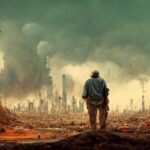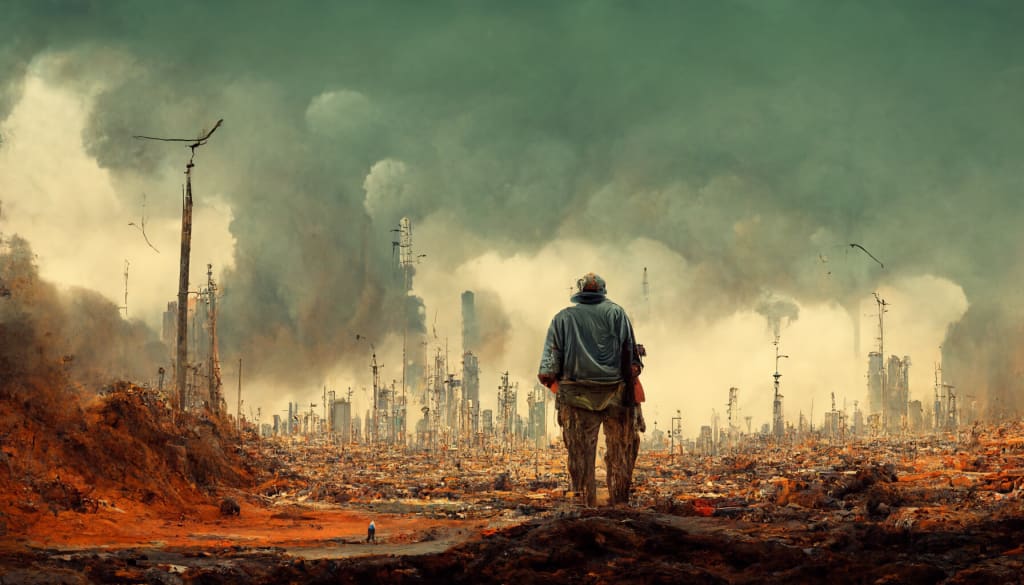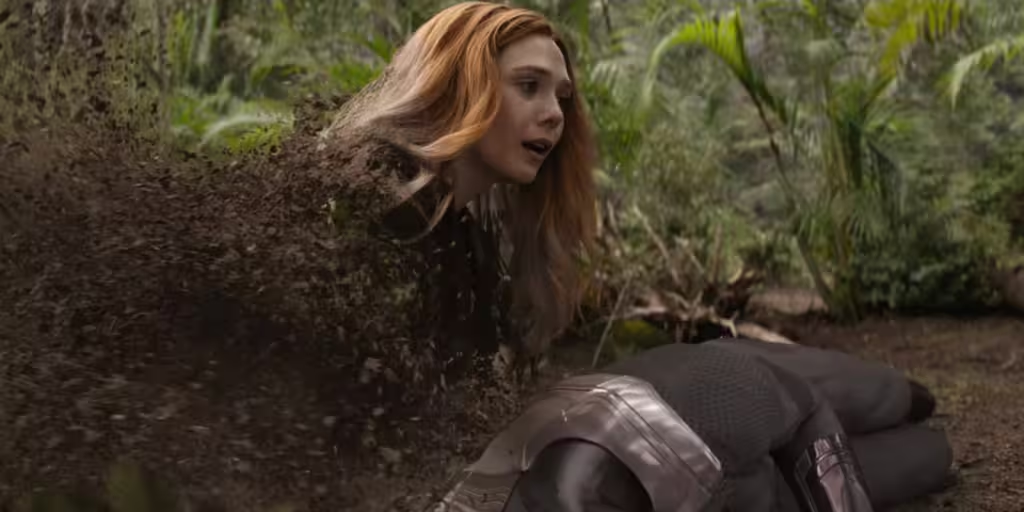Imagine a catastrophe so swift, so absolute, that it makes nuclear war look like a minor inconvenience. Picture a disaster so overwhelming that it would render every other apocalyptic scenario — super-volcanoes, asteroid impacts, even the death of our sun — utterly irrelevant. Now, brace yourself for something even worse.
Thank you for reading this post, don't forget to subscribe!
Five seconds.
That’s all it would take to tear our world apart. Not in years, not in days, not even in minutes. In less time than it takes to read this sentence, our entire civilisation — indeed, the very face of our planet — would be irreversibly destroyed.
The culprit? It’s not some exotic particle or alien invasion. It’s the sudden disappearance of something so commonplace, so ever-present, that you’re experiencing it without a second thought: oxygen.

For five devastating seconds, every breath you attempt would be futile. But asphyxiation would be the least of your worries. In these mere moments, you would witness:
- Skyscrapers crumbling like sandcastles in a storm
- The ground beneath your feet dissolves into a bottomless abyss
- The sky turning pitch black, as if some cosmic light switch had been flipped
- Every vehicle on Earth simultaneously grinds to a permanent halt
- The very fabric of our planet’s crust disintegrating in real-time
This isn’t science fiction. This isn’t some far-fetched doomsday prophecy. This is the cold, hard, terrifying reality of what would happen if our planet lost its oxygen for just five seconds. It’s a scenario so catastrophic and all-encompassing that it defies our ability to fully comprehend it.
As you read on, prepare to have your understanding of the world shaken to its core. What follows is not just a story of destruction, but a stark reminder of how precarious our existence truly is, balanced on the razor’s edge of atmospheric chemistry.
Welcome to the five seconds that would change everything. Welcome to the end of the world as we know it. Here’s what will happen in the next 5sec of your life without oxygen.
The Moment Everything Crumbles
In an instant, the walls around you turn to dust. That sturdy concrete building? It’s now a cloud of particles. Why? Oxygen isn’t just for breathing – it’s a crucial binding agent in concrete. Without it, the molecular structure fails, and buildings literally fall apart.
Ground Zero: Earth’s Crust Collapses
As you try to run, the ground beneath your feet begins to crumble. This isn’t just some localized sinkhole – it’s happening everywhere. Earth’s crust is 45% oxygen. When that oxygen vanishes, the crust loses its structural integrity. You’re not just running; you’re in free fall as the planet’s surface disintegrates beneath you.
A World Fusing and Falling Apart
In this chaos, you notice something bizarre: metal objects are fusing together. Your keys are now part of your phone. How? Oxygen normally creates a thin layer of oxidation on metals, preventing them from welding on contact. Without this layer, pure metal surfaces instantly bond when they touch.
Darkness Falls
Look up, and terror truly sets in. The once-blue sky is now pitch black, with stars visible even in the daytime. This isn’t just visually terrifying – it has deadly implications. Our atmosphere scatters sunlight, creating a blue sky. Without oxygen, which makes up 21% of our atmosphere, light travels straight through, leaving the sky dark and exposing Earth to deadly levels of solar radiation.
Your Body Under Siege
Your ears pop violently as air pressure drops by 21% – the amount of oxygen usually in our atmosphere. This rapid change is like being teleported from sea level to 2,000 meters altitude in a split second. The pain is excruciating, and for many, eardrums would rupture.
Simultaneously, your skin begins to burn. The ozone layer, made entirely of oxygen, normally shields us from the sun’s harshest UV rays. Its sudden absence leaves you exposed to radiation levels that can cause severe burns in seconds.
Silent Engines, Falling Skies
Screeching tyres and crunching metal fill the air as every car grinds to a halt. Engines, which rely on oxygen for combustion, die instantly. In the distance, you hear aeroplane engines going silent. It’s not just cars – every combustion engine on Earth fails simultaneously. Planes, now nothing more than heavy gliders, begin their deadly descent.
The Human Element: No Time to React
In these five seconds, there’s no time for goodbyes. Humans can hold their breath for minutes, so ironically, lack of breathing oxygen isn’t your immediate problem. Instead, it’s the collapsing world around you that poses the gravest threat. The businessman on the 40th floor, the child in the schoolyard, and the surgeon in the operating room – all face unique dangers in their specific locations.
A World Forever Altered
As oxygen returns after these five devastating seconds, the world is unrecognizable. The atmosphere, restored to its normal composition, reveals a planet fundamentally changed. Survivors, if any, would emerge to a primitive Earth, stripped of infrastructure, technology, and the very geological stability we take for granted.
More Than a Thought Experiment
While this scenario is hypothetical, it serves as a stark reminder of our planet’s delicate balance. Oxygen isn’t just for breathing – it’s a fundamental building block of our world, crucial for the stability of our planet’s crust, our buildings, our technology, and our protective atmosphere.
As we face real environmental challenges, let this fictional apocalypse be a wake-up call. Every molecule in our atmosphere plays a crucial role in maintaining the world as we know it. Climate change, air pollution, and deforestation aren’t just abstract concepts – they’re real threats to the delicate balance that keeps our world intact.
Every breath you take from this moment on carries new significance. It’s not just air – it’s the essence of our world, the key to life as we know it. In every inhale and exhale, remember: five seconds is all it would take to end everything. Let that knowledge inspire us to protect our planet, our atmosphere, and each other, cherishing and preserving the delicate, oxygen-rich world we call home.













